The Impact of Antibiotics on Gut Health Wellness: Natural Solutions for a Healthy Microbiome
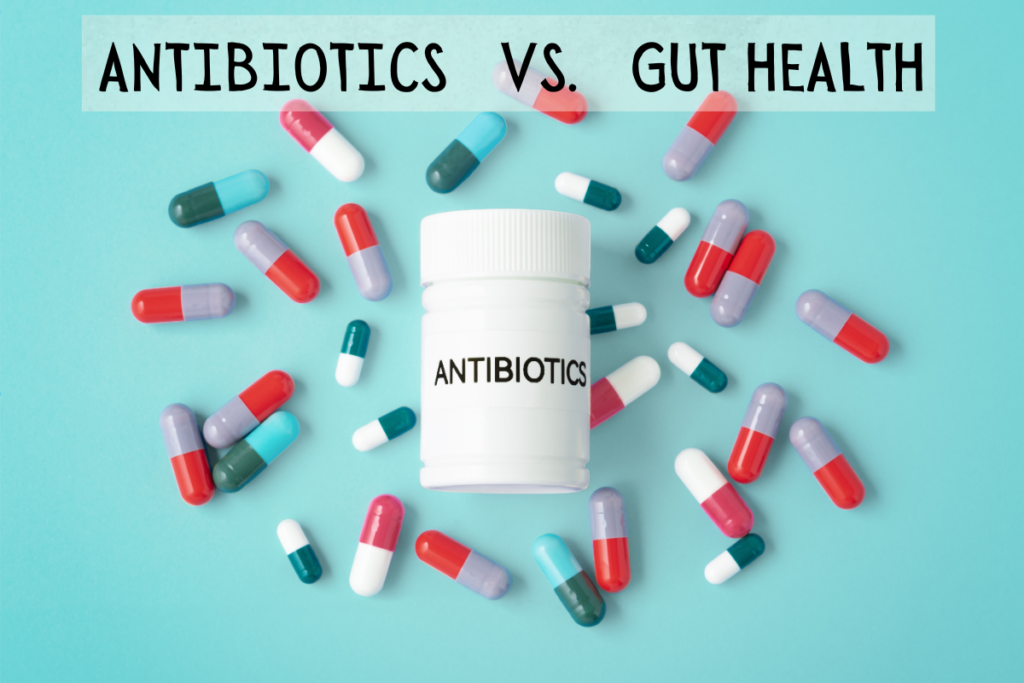
Gut health wellness has become a hot topic, and for good reason. Your gut is home to trillions of microorganisms that play a vital role in digestion, immune function and even mental health. However, modern medicine, particularly antibiotics, can inadvertently harm this delicate ecosystem. Understanding how antibiotics affect the gut microbiome and learning natural ways to restore balance is crucial for overall health.
THIS PAGE CONTAINS AFFILIATE LINKS, WHICH MEANS I MAY EARN A COMMISSION, SHOULD YOU MAKE A PURCHASE USING MY LINK. DON’T WORRY…IT’S AT NO EXTRA COST TO YOU AND I LOVE THE PRODUCTS THAT I SHARE!
I am not a doctor and this information should not be considered medical advice. This post is for informational purposes and is my own personal experience. If you need medical help, seek this from your own medical professional.
Understanding the Gut Microbiome
The gut microbiome consists of a complex community of bacteria, fungi, and other microbes that live in your digestive system. These microorganisms help break down food, produce essential nutrients and maintain a balanced immune response. A healthy gut microbiome acts as a barrier against harmful pathogens.
When balanced, the microbiome fosters health. But disruptions—often caused by lifestyle, diet or medications—can lead to gut dysbiosis, an imbalance in the microbial environment.
How Antibiotics Affect the Gut Microbiome
Antibiotics are powerful tools for fighting bacterial infections, but they don’t discriminate between harmful and beneficial bacteria.
- Broad-Spectrum Antibiotics: These target a wide range of bacteria, wiping out both good and bad microbes.
- Narrow-Spectrum Antibiotics: While more selective, they can still disrupt gut bacteria.
The use of antibiotics can lead to:
- Loss of bacterial diversity.
- Overgrowth of harmful bacteria, such as Clostridioides difficile (C. diff), which can cause severe diarrhea.
- Long-term health effects, including increased risk of obesity, diabetes and autoimmune diseases.
Signs and Symptoms of a Damaged Gut Microbiome
After taking antibiotics, many people notice:
- Digestive Issues: Bloating, diarrhea or constipation.
- Weakened Immune Function: Increased susceptibility to colds and infections.
- Mood Changes: The gut-brain connection disrupted, often leading to anxiety, depression or brain fog.
Dr. Eric Berg shares some great insight on the effects of antibiotics on the body and provides solutions, here.
Natural Solutions to Restore Gut Health Wellness After Antibiotics
Recovering from antibiotic use requires intentional steps to support and rebuild the gut microbiome. Research shows that use of antibiotics can damage the gut for several years time, especially without you being intentional afterwards to assist in the healing process.
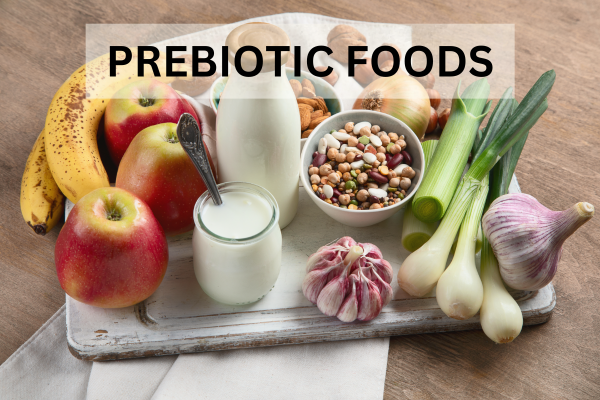
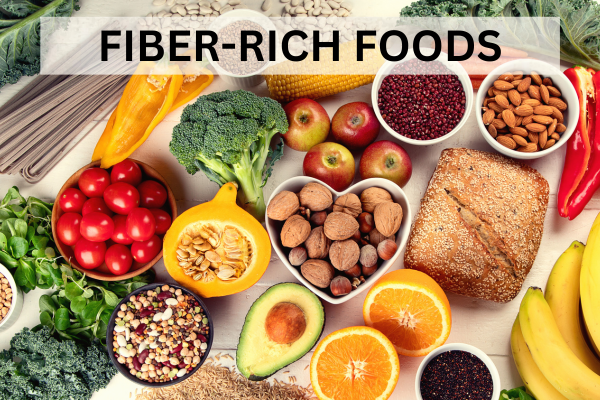
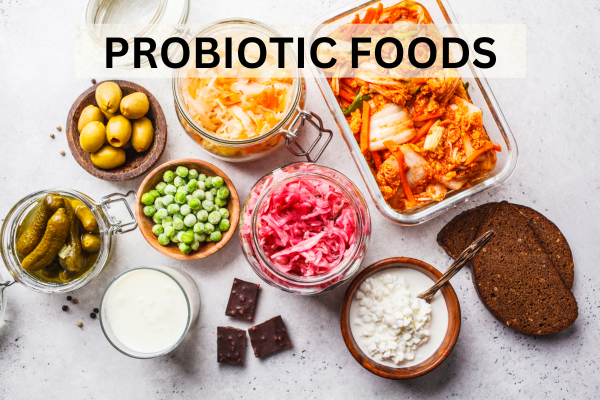
Probiotics and Prebiotics
- Probiotics: Live bacteria that can replenish gut flora. Look for strains like Lactobacillus and Bifidobacterium.
Sources: yogurt (no sugar), kefir (no sugar) and high-quality probiotic supplements. We have also been having success with yogurt using a bacteria strain called L-Reuteri. We make a homemade version with the InstantPot.
- Prebiotics: Non-digestible fibers that feed beneficial bacteria.
Sources: bananas, onions, garlic and asparagus
Fiber-Rich Foods
A high-fiber diet helps nourish good bacteria and promotes gut healing. Whole grains (non-GMO), organic fruits and vegetables are excellent choices.
Fermented Foods
Include foods like sauerkraut, kimchi and kombucha to naturally introduce beneficial bacteria into your gut.
Hydration
Water aids in digestion and helps maintain the mucosal lining of the gut, preventing inflammation.
Bone Broth
Rich in collagen and amino acids, bone broth supports the gut lining and aids in recovery after antibiotic use.
Dr. Barbara O’Neill is a wealth of knowledge when it comes to natural health! Check out this informative video on antibiotics and some phenomenal natural alternatives.
Preventative Measures and Natural Alternatives to Antibiotics
While antibiotics are sometimes necessary, natural alternatives can often address minor infections without disrupting the gut.
- Strengthening the Immune System
- Eat a nutrient-dense diet.
- Take immune-supporting supplements like vitamin C, zinc and echinacea.
- Blends of organic medicinal mushrooms, including reishi, lions mane, turkey tail and chaga can provide a tremendous boost for the immune system. We love this one.
- Consistent detox methods, which you can learn more about in this article.
- Herbal Antimicrobials
- Use raw organic garlic, oregano oil or colloidal silver as natural antibacterials for minor infections. We have terrific success with all three of these herbal remedies!
- Always consult a healthcare provider for proper usage.
- Mindful Antibiotic Use
- Only take antibiotics when prescribed.
- Discuss probiotic supplementation with your doctor to protect gut health wellness during antibiotic treatment.
In Conclusion
The first step is choosing to be proactive to keep your gut health and immune system as strong as they can be. Small, intentional choices can keep your system stronger to ward off illness, thus not needing an antibiotic in the first place. This article will give you some great ideas on where to get started with your own health journey.
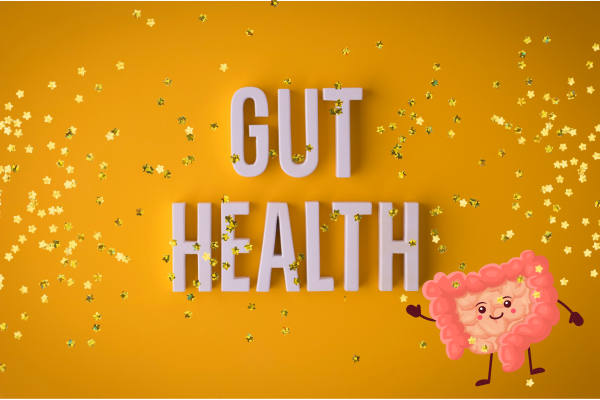
Your gut microbiome plays a central role in your overall health, but it’s vulnerable to disruptions, especially from antibiotics. While these medications are sometimes unavoidable, you can take proactive steps to restore and support your gut health naturally. By incorporating probiotics, prebiotics and gut-healing foods into your routine, and considering natural remedies as alternatives, you can nurture a healthy, balanced microbiome for years to come.
Prioritize your gut health wellness—it’s the foundation of your well-being!
Blessings, 🙏🏻🥰
Becky
Leave a Reply Cancel reply
Template by The Creative Impact
Template by The Creative Impact
© 2025 Ready For Better Health |
Get YOUR "how to get started checklist" for free
Browse the site
SEND ME MY
FREE COPY!